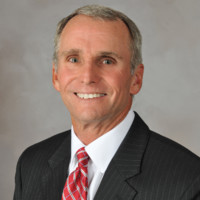
Unless you’re a sole proprietor, you only achieved success through teamwork. The language you use can either encourage or discourage that teamwork.
by Anthony Rock
As a consultant, I’m often asked what I learned in 35 years of military adventure, and how it might apply to the corporate world. There’s literally dozens of things I could talk about from strategy, to operations, to leadership and ethics, and more. For me, each lesson starts with what sounds like a clever bumper sticker or cliché, but each has much deeper meaning. As I tilled my garden today for spring planting I thought of this—even when in command, and at every level of command, I “owned” nothing—not ever. For 35 years the Air Force merely “lent me” people, equipment, and organizations with two simple expectations: Accomplish the mission while caring for and developing the airmen, soldiers, sailors, and marines working for you (and by the way, their loved ones too), and return organizations better than you found them. In command at every level, the flight, squadron, group, wing, and center level, I never “owned” anything except all the accountability.
So, I now find myself sometimes telling war (or what seemed like “war” at the time) stories to reinforce points about what I learned and where I failed, or sometimes succeeded. As I do so, I’ll occasionally hear myself saying, “I had…” or “My people/jets/etc.…” When I catch myself in this leadership fail, I immediately backtrack and say, “I’m sorry, I meant to say ‘our’ mission/jets/facilities/etc., not ‘my,’ and I meant ‘we’ not ‘I’.” Simply put, I always to try to minimize (better yet, eliminate) “I” and “my” in favor of “we” and “ours.” Unless you own your own business, the people, mission, equipment, and facilities aren’t “yours.” This simple filter has served, and increasingly serves, me well. It also sends a powerful message to the workforce—“We’re in this together and you are an employee-owner in our enterprise and effort, and you’re critical to our victory. This is OURS.” A boss once reminded me, we have to be tactically proficient, but focus just as hard on the people. His words still resonate, “The people won’t care how much you know, until they know how much you care. Then they’ll do anything for you.” Yep, it sounds cliché, but it’s cliché because it’s true.
Funny the things you think of with a pitchfork in hand. I remain passionate about sharing the “I and My” lesson and other leadership reflections with the next generation of leaders, or any others who wish to listen. I can only hope I helped to grow leaders for our force that are as productive as my squash vines and okra stalks, and that production’s pretty darn prolific. At the end of the day, none of us have any more important mission or commendable objective than “growing our replacements” and passing the baton. I stand ready to continue to help.
If you’re building a team and you have positions you can’t fill, you need to use SMA Talent on Demand (TOD®)! With TOD®, you can find experienced talent and subject matter expertise, such as Anthony, matched to your exact needs.
